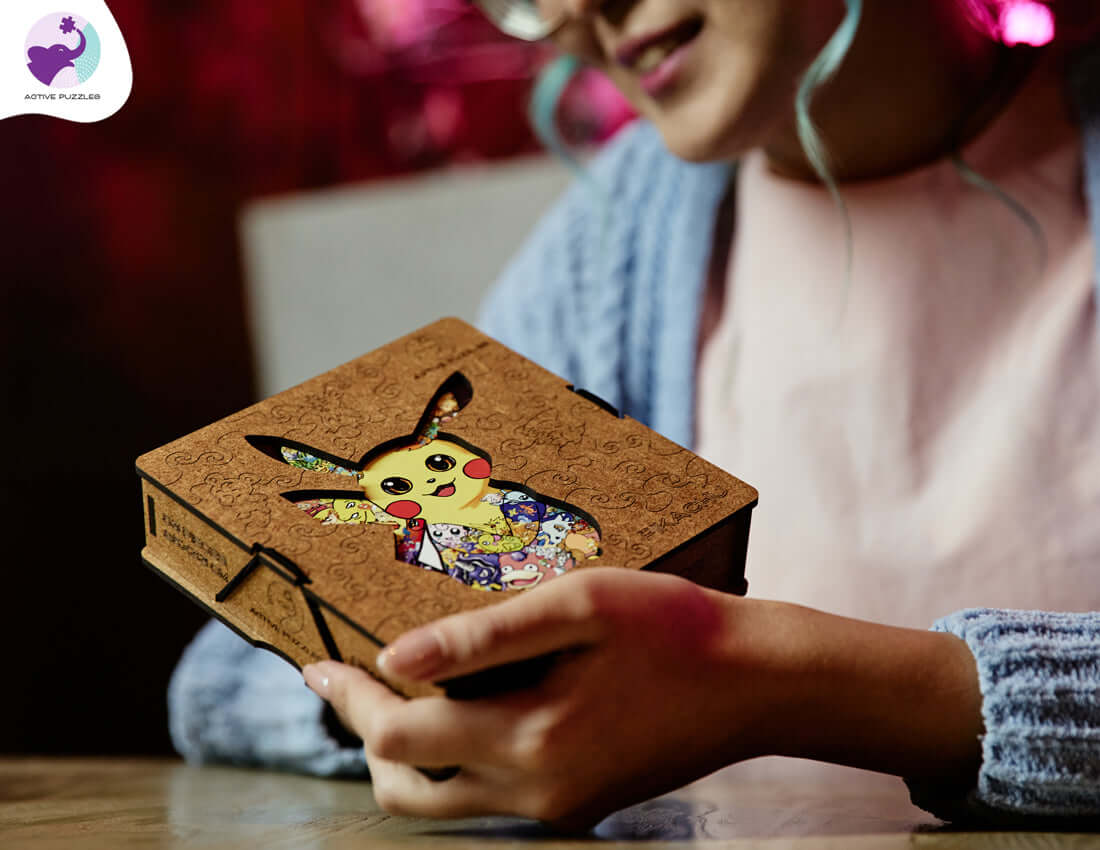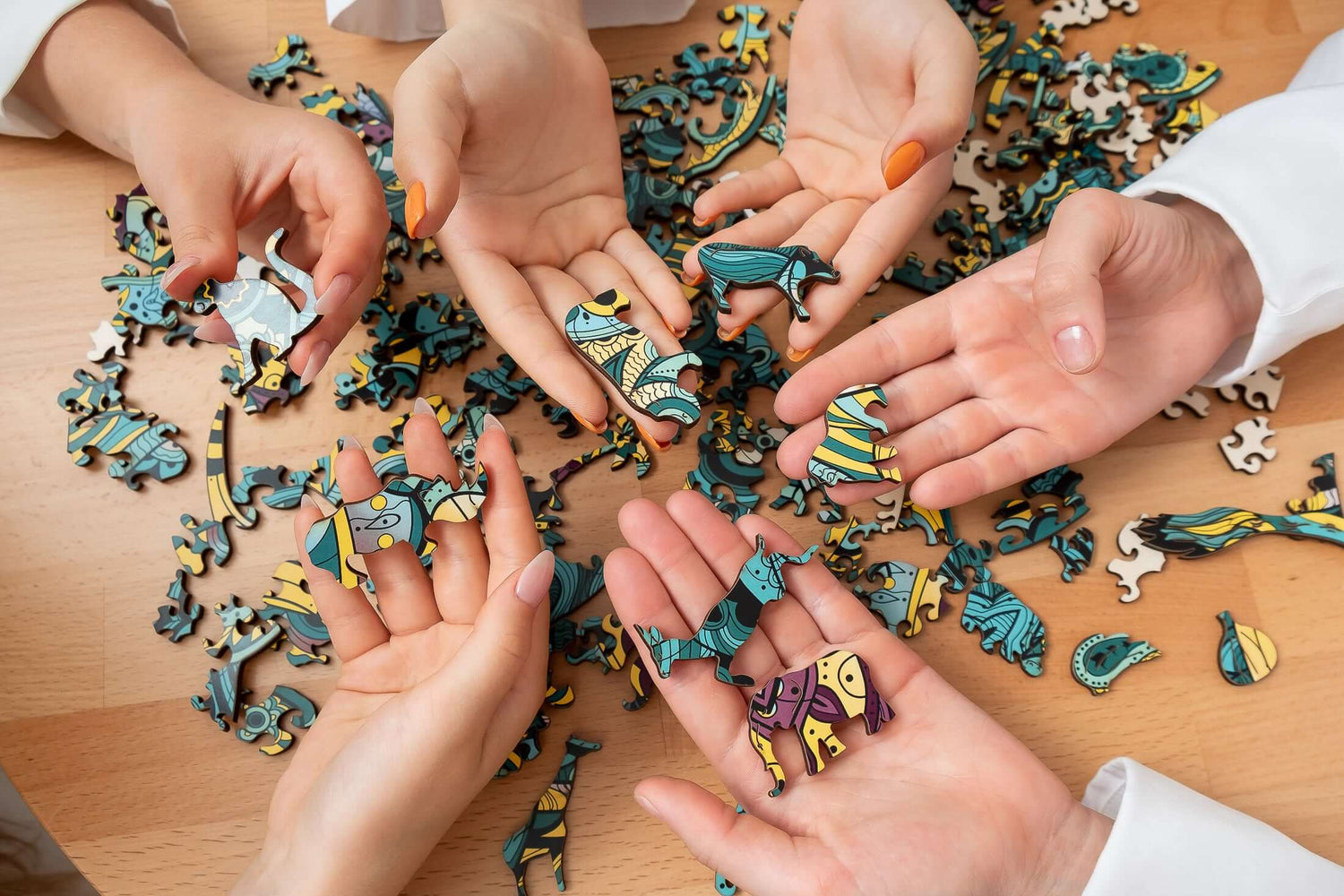
Why the Pokemon jigsaw puzzles could entertain the kid
Share
As a great mental workout, Pokemon puzzle-solving can help you think faster, remember details more clearly, and solve problems more efficiently. Jigsaw puzzles are a great way to exercise your brain's visual and spatial systems.
It comes as no surprise that making it through harsh environments is challenging. The more you learn, the better equipped you'll be to deal with the stresses of daily life. Research shows that children can pick up complex ideas quickly.
The world fascinates them at this age. To help their children grow in crucial ways, parents should encourage them to participate in games and other activities they enjoy.
When considering the benefits of Pokemon jigsaw puzzles, many advantages become apparent. Having your child play with all the puzzle pieces will provide the evident benefit of keeping them occupied for a while, but some unexpected benefits will develop. Join me in taking a closer look at them:
-
Fine Motor Skills:
Fine motor skills can benefit significantly from playing with Pokemon wooden puzzles.
Picking up and handling the various pieces helps kids build finger strength. They must pick them up, flip them over, and hold them carefully to fit them together.
Make sure the pieces are the right size for your child's age and development, as you would with any acceptable motor activity. The puzzle components should be more significant for younger children to practice before moving on to the smaller parts.
-
Developing Your Gross Motor Coordination:
Playing with some puzzles, such as massive floor Pokemon wooden puzzles, can help improve one's gross motor skills. Kids who spend time building use their bodies in novel ways, promoting muscle growth.
Actions like reaching across the body to retrieve a piece off to the side or leaning across it to arrange it in position encourage the body to cross its midline.
-
Visual Perception:
While putting together a puzzle, a young child's eyes take in the many shapes, images, and forms on the pieces and send that information to the brain for processing. This process, known as visual perception, is the acquisition of data through the sense of sight.
Without this skill, you can't understand how everything works or how individual pieces fit into the whole. Putting together Pokemon wooden puzzles is a great way to help kids hone their visual perception abilities, which are crucial for reading and writing.
Puzzles can be used to improve many different areas of visual sight:
- The ability to remember things visually.
- Ability to tell one thing apart from another; Comprehending what one sees visually
- Detailing the shape of things
- The skill of visually analyzing and synthesizing information by identifying connections and making inferences
When we close off our field of vision, we are better able to identify objects that are only partially in view (e.g., a piece of an eye on a puzzle piece)
-
Eye-hand coordination:
Eye-hand coordination is the ability to perform tasks such as catching a ball or fastening your shoes simultaneously. Pokemon Jigsaw Puzzles are a terrific way to help kids develop essential skills like hand-eye coordination and visual-motor integration.
In elementary mathematics, puzzles help kids hone their pattern-spotting skills in geometry and beyond. The ability to detect shapes is crucial in geometry, and patterns may be found in nearly every area of mathematics.
-
Increases the Attention Span:
Have you ever watched a child work on a Pokemon jigsaw puzzle and noticed that they sit perfectly still for a longer period than usual, wholly absorbed in the task?
This is a fantastic game for training youngsters to focus without getting distracted, and it can help them work up to more extended periods of undistracted concentration.
A toddler's mood dictates when they will begin and end up participating in certain activities. A puzzle is not complete until every component fits snugly into its designated slot.
This outcome is increased drive and a gratifying feeling of having accomplished something difficult.
-
Dealing with Complicated Circumstances:
As they work to solve a challenge, kids' minds seem to "explode" from their ears. They have to use their minds to figure out the puzzles.
To put it simply, a puzzle needs to be solved in some way, either rationally, by trial and error, or by matching some color, form, pattern, etc. There should be plenty of play-based problem-solving chances for kids.
-
Spatial Relations:
Understanding spatial relationships between objects are crucial in evolving spatial competence. This ability is crucial for learning to read and write, especially when mastering the correct formation of letters and numbers (e.g., differentiating between letters b and d).
-
Confidence in Oneself:
When a child completes a puzzle, especially one they have worked on independently, they gain tremendous pride and satisfaction in their talents.
The consequence is a boost in self-esteem and pride for the kid. Given this, it is essential to give kids age-appropriate puzzles. Puzzles are meant to be solved independently, but not too simple.
A child may give up on a puzzle if they are having trouble with it. The next time around, they will think twice before picking a mystery because of this.
-
Perseverance:
A child who works through exhaustion to complete a puzzle is gaining perseverance. This skill will serve you well in any career or academic endeavor.
Children learn resilience and perseverance when they face and overcome repeated failures after making what seems like the wrong choice.
-
Relaxation:
Many grownups find puzzle-solving to be a satisfying and calming pursuit. It's an excellent strategy for calming anxious children since it helps them relax, become more self-aware, and gain perspective. As a bonus, it works well as a means of winding down after a tough match.
Conclusion
Playing with Pokemon jigsaw puzzles might help you learn things without realizing it. Themed puzzles give parents more leeway in choosing the type of challenge that would foster their child's development in a given domain.
Learning the alphabet, colors, and numbers are good ways to prepare for school. Preschoolers who engage in educational pursuits that are both fun and educational are more likely to want to continue their education if given a chance.
